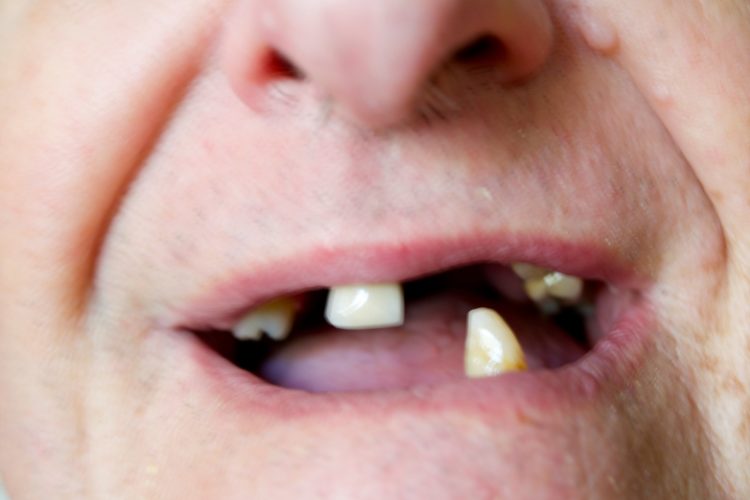
A recent study from the UK found that by the time they’re 70, poor people have an average of eight less teeth than rich people. The huge discrepancy comes down to dental accessibility and knowledge, underscoring the importance of dental health.
The study was conducted by researchers at Newcastle University, Newcastle Upon Tyne NHS Foundation Trust, UCL and the National Center of Social Research, who wanted to better understand the link between socioeconomic status and oral health.
While the finding that poorer people have worse dental health than the rich may not be surprising, a difference of eight teeth is certainly staggering. As it turns out, a basic dental IQ can be the difference between a healthy smile and a toothless one.
5 Ways to Prevent Tooth Loss
The following five prevention techniques become increasingly important with age, as tooth decay becomes a more serious and prevalent threat in later years. However, we always encourage patients to begin developing these habits early so they’re well integrated into their lifestyle.
1. Practice general oral hygiene – First and foremost, basic oral hygiene is the best way to prevent tooth loss. That primarily includes brushing twice and flossing daily.
This routine helps prevent plaque build-up on and between your teeth, which could otherwise erode enamel and cause cavities. It also prevents your gums from becoming infected and inflamed. Combined, tooth decay and gum disease weaken tooth-supporting tissue, which can lead to tooth loss.
If you want to take extra precautions, the American Dental Association recommends using toothpaste and mouthwash that contains fluoride, which can further reduce plaque and bacteria build-up.
2. Schedule regular dental appointments – The standard recommendation is to schedule a dental appointment every six months for a general cleaning. These appointments can also help identify unknown issues that could otherwise lead to tooth loss.
Additionally, if you feel any amount of tooth pain, don’t put off making an appointment. Ignoring symptoms, no matter how minor, can lead to much more serious problems down the road that could ultimately perpetuate tooth loss.
3. Have a healthy diet and lifestyle – Having a diet high in sugar, including candy, gum, or other sugary snacks, can lead to tooth loss as sugar leads to tooth decay. This is especially true if you don’t brush your teeth after eating.
Avoiding other carbohydrates, such as pretzels and chips, can also help prevent tooth loss, as these stickier foods tend to coat and remain on the tooth surface.
Other poor lifestyle choices, especially smoking or chewing tobacco, can also lead to extreme bacteria buildup and damage your teeth and gums.
4. Stop grinding your teeth – Chronic teeth grinding places undue wear and tear on your teeth, and can result in fractured, loosened or lost teeth. It can also make your teeth shorter and more prone to decay.
One way to prevent teeth grinding is to consult your dentist about getting fitted for a mouth guard to wear while you’re sleeping. Some other ways to combat the grinding of teeth include cutting back on caffeine and alcohol, as well as stopping other bad habits that promote grinding, such as biting pencils.
5. Get your teeth straightened – Teeth that are too widely spaced or crowded often become inflamed and red, which are signs of periodontal disease. Straightening your teeth helps the gums fit securely around the teeth, which can prevent tooth loss down the road.
Additionally, crowded teeth are much more difficult to floss, which can lead to plaque and bacteria buildup, and eventually tooth decay.
One easy way to get your teeth straightened is with Invisalign. Invisalign uses transparent retainer-like tooth aligners to shift your teeth incrementally into the proper position.
Most people love Invisalign for the fact that it is nearly impossible to see. It is also extremely easy to remove the aligners for eating, drinking and cleaning your teeth (however, they must be worn for at least 22 hours per day).
To determine if you’d make a good Invisalign candidate, set up a consultation with a dentist or orthodontist who supports Invisalign. An Invisalign Assessment Test can also be a good indicator, but understand that only a certified expert can tell you with certainty whether or not Invisalign will work for you.
You may have always thought of poor people as having less teeth – but to see the number actually quantified really puts things into perspective. It’s also a clear indication of how important basic oral care is to your health, career and life.
